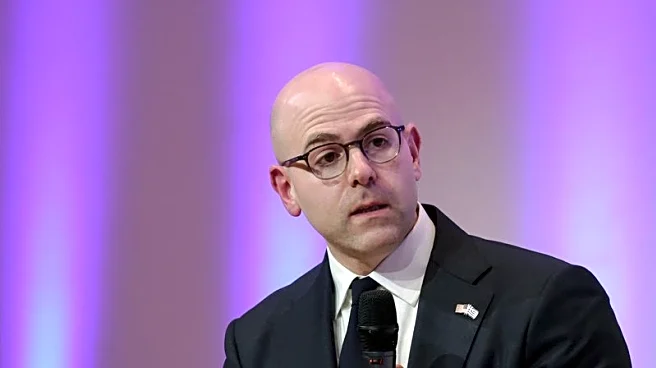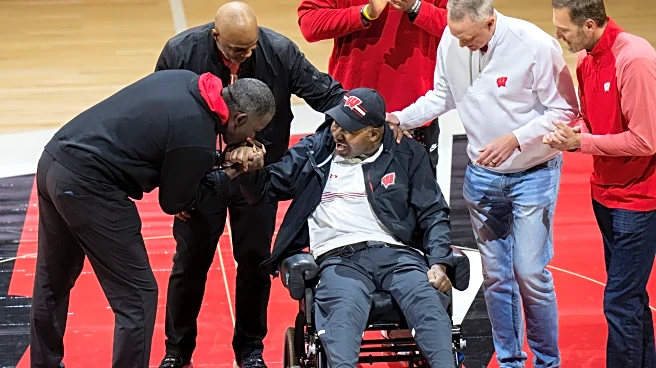What's Happening?
Sarah Collins, a former teacher from Oakham, has launched a bespoke consultancy service aimed at supporting individuals living with dementia in the Rutland and Stamford areas. The service, which began last month, focuses on maintaining dignity and individuality
through personalized sessions tailored to each client's interests and diagnoses. Collins, who has a background in education and dementia audits for the National Trust, uses a humanist approach to engage and stimulate her clients. Her sessions are designed to be fun and are based on the specific interests of each individual, whether it be woodwork, sports, or other activities. Collins emphasizes that a dementia diagnosis should not define a person's life, advocating for a shift in societal perceptions and encouraging people to see beyond the diagnosis.
Why It's Important?
The launch of this consultancy is significant as it addresses the stigmas associated with dementia and promotes a more inclusive approach to care. By focusing on individual interests and capabilities, Collins' service challenges the notion that life ends with a dementia diagnosis. This approach not only benefits those diagnosed but also their families and the wider community by fostering understanding and support. Additionally, Collins' work with businesses to become more dementia-friendly could lead to increased patronage from those affected by dementia, highlighting the economic and social benefits of inclusivity. Her personal experience with dementia, both as a carer and a former patient, adds credibility and empathy to her work, potentially inspiring similar initiatives elsewhere.
What's Next?
Collins plans to continue expanding her consultancy services, offering audits to businesses to help them become more dementia-friendly. This could lead to a broader acceptance and understanding of dementia in the community, encouraging more businesses to adopt inclusive practices. As awareness grows, there may be increased demand for similar services, potentially influencing public policy and funding for dementia care. Collins' approach could serve as a model for other regions, promoting a shift in how dementia care is perceived and delivered.
Beyond the Headlines
The consultancy's focus on individual interests and dignity highlights a cultural shift towards personalized care in dementia treatment. This approach challenges traditional methods that often generalize the needs of dementia patients, advocating instead for a more nuanced understanding of the condition. By involving family members and the community, Collins' work also underscores the importance of a supportive network in managing dementia. Her initiative may inspire further research into personalized care models and their long-term benefits for dementia patients.

















